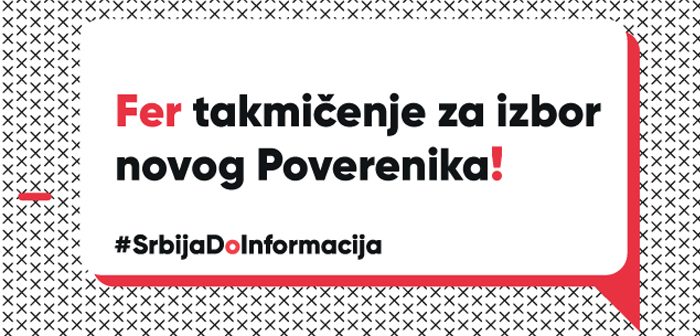Project title: Defending the Right to Access Information in Serbia
Duration of project: December 2018 – September 2019
Donor: The Open Society Foundation (OSF)
About the project: The project aims to contribute to greater transparency in the election of a new Commissioner for Information of Public Importance and Personal Data Protection, as well as to analyze the efficiency of the institution’s work after the election.
The mandate of the Commissioner for Information of Public Importance and Personal Data Protection, who held office for two terms, 14 years in total, expired on December 22. The election of a new Commissioner will be a challenge for the further efficient work of this institution, which, according to public opinion polls, is one of the most prestigious institutions and one that citizens trust the most. In the context of traditionally poor democratic institutions and a “captured stateʺ, a term used by European institutions to describe Serbia, the continued work of Commissioner’s institutions is of great importance for the further sustainability of independent institutions in the Republic of Serbia. The Commissioner is a stand-alone organ in the legal system of the Republic of Serbia, therefore personal change can also lead to a change in the efficiency of the work of the entire institution, bearing in mind the experience that Serbia has had with changes in other independent institutions.
The project “Defending the Right to Access to Information in Serbiaʺ, implemented with the support of the Open Society Foundation, aims to, through public engagement of the Lawyers’ Committee for Human Rights members, predominantly in the media, advocate for transparent criteria for the election of a new Commissioner and clear qualifications of candidates for this position, as well as to relate to citizens, through the media, the importance of this institution and the relevant practice of EU states concerning the process of electing independent institutions. In order to assure wider public participation in the process of selecting a new Commissioner, and insisting on clear selection criteria for the candidate, the project will contribute to the transparency of the process and informing citizens of its significance through various activities.
In the final stage, the project will revise the performance this institution after a new Commissioner will have been elected and citizens will be more informed on new legal regulations, adopted through EU accession negotiations, as well as the rights whose legal protection this independent institution is responsible for. Finally, by collecting the data and creating special report, the project will test the implementation of laws which the Commissioner’s institution is responsible for under the new circumstances following the election.





